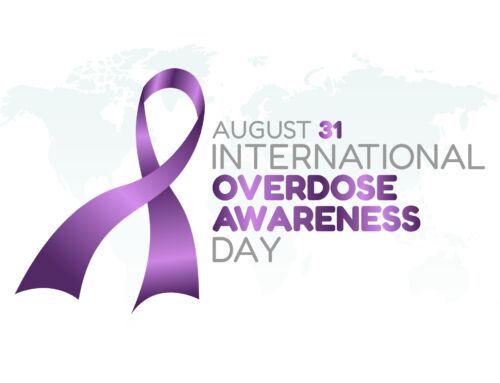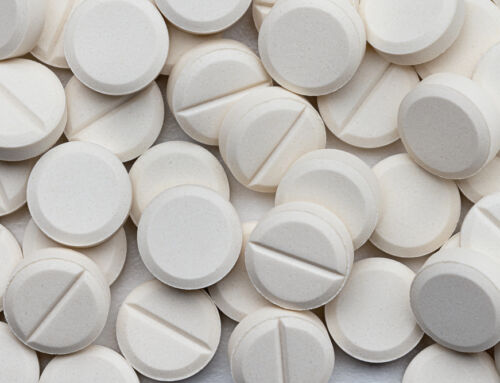Facing alcohol withdrawal is one of the most challenging aspects of recovering from alcohol use disorder, but it’s also one of the most important steps toward a healthier life. At Greenbranch Recovery in Egg Harbor Township, we understand how alcohol affects the body and mind, and we’re here to help residents of South Jersey navigate this complex process with care, compassion, and clinical support.
Whether you or a loved one is beginning to experience withdrawal symptoms or preparing to stop drinking, knowing what to expect—and when to seek help—is essential for safety and success. Call (609) 622-5101 or visit our admissions page today if you are ready for help.
Understanding Alcohol Withdrawal: What Happens When You Stop Drinking?
Alcohol withdrawal occurs when someone who has been drinking alcohol heavily or consistently suddenly reduces or stops their intake. The body, especially the central nervous system, adapts to the presence of alcohol over time. Alcohol acts as a depressant, and with long-term use, the nervous system recalibrates to counteract these effects. When alcohol use stops abruptly, the brain becomes overstimulated, leading to the symptoms of alcohol withdrawal.
This condition is known medically as Alcohol Withdrawal Syndrome (AWS) and symptoms can range from mild discomfort to serious, even life-threatening, complications.
Recognizing the Alcohol Withdrawal Symptoms
The symptoms of withdrawal vary based on a person’s drinking history, overall health, and risk factors like a family history of substance abuse or mental health disorders. Common alcohol withdrawal symptoms include:
- Anxiety and irritability
- Shakiness or tremors
- Nausea and vomiting
- Sweating and rapid heartbeat
- Insomnia or vivid dreams
- Headaches and fatigue
More severe symptoms may include:
- Hallucinations (visual, auditory, or tactile)
- Alcohol withdrawal seizures
- High blood pressure
- Delirium tremens, which can involve confusion, fever, and agitation
These serious symptoms can begin 48 to 72 hours after the last alcoholic drink and may require intensive care. Anyone who experiences severe mental symptoms or signs of delirium tremens should seek medical attention immediately.

The Alcohol Withdrawal Timeline: What to Expect
Understanding the alcohol withdrawal timeline can help individuals and their families prepare for what’s ahead. Here’s a general breakdown of when typical symptoms may appear:
- 6 to 12 hours after the last drink: Early mild symptoms such as nausea, tremors, and anxiety
- 12 to 24 hours: Worsening symptoms, including irritability and sleep disruption
- 24 to 72 hours: Risk of hallucinations, seizures, and serious symptoms such as high blood pressure
- Beyond 72 hours: Lingering anxiety, insomnia, and cravings—sometimes lasting for weeks
This timeline can be influenced by heavy alcohol use, co-occurring mental disorders, or pre-existing health problems. Individuals with a history of alcohol abuse, five or more drinks daily (or four or more drinks for women), or frequent binge drinking are at a higher risk for complications.
If you or someone you love needs help, call (609) 622-5101 or visit our admissions page.
Why Supervision Matters During Alcohol Withdrawal
While not everyone experiencing alcohol withdrawal will need hospitalization, symptoms must be closely monitored. The unpredictability of AWS makes it unsafe to attempt withdrawal without guidance—especially for those with a drinking problem rooted in long-term, unhealthy alcohol use.
Medical professionals can assess medical history, determine whether withdrawal is likely to be mild or severe, and recommend supportive care or referrals. In some cases, short term medications may be used to ease symptoms.
After Withdrawal: Support That Builds Long-Term Recovery
Even after the alcohol level in the blood has dropped and the symptoms of withdrawal have subsided, many individuals continue to face emotional and psychological challenges. These can include alcohol cravings, anxiety, fatigue, and difficulty sleeping—symptoms commonly associated with Post-Acute Withdrawal Syndrome (PAWS).
This extended phase of recovery requires continued support and professional care. Greenbranch Recovery offers evidence-based outpatient treatment that addresses not only alcohol addiction, but the mental health and behavioral aspects of recovery. Our approach is personalized and includes:
- Individual and group counseling
- Family involvement and education
- Community integration support
- Connection to support groups like Alcoholics Anonymous
By combining clinical care with peer support, we help our clients replace alcohol abuse with healthy coping mechanisms, goals, and meaningful daily routines.
The Role of Medication-Assisted Treatment (MAT)
For some people with alcohol use disorder, alcohol withdrawal treatment may include medication-assisted treatment (MAT). While MAT is more widely recognized for opioid recovery, certain FDA-approved medications can also be used to reduce cravings and support abstinence from drinking alcohol.
These may include:
- Naltrexone – blocks the euphoric effects of alcohol
- Acamprosate – helps restore chemical balance in the brain
- Disulfiram – creates unpleasant reactions when alcohol is consumed
At Greenbranch Recovery, MAT is considered on a case-by-case basis, always in conjunction with medical supervision, therapy and other supports. Our team works with individuals to determine if medication may enhance their recovery plan. To learn more, call (609) 622-5101 or visit our admissions page.
Nutrition, Health, and the Body’s Healing Process
Long-term alcohol use can place a heavy burden on the body, particularly affecting the gastrointestinal system, liver, and nervous system. This often results in nutrient deficiencies, dehydration, and unstable blood sugar levels—factors that can intensify withdrawal symptoms and hinder emotional stability. At Greenbranch Recovery, we recognize that addressing these physical imbalances is essential to building a foundation for sustainable recovery.
As part of our comprehensive treatment approach, we emphasize the role of nutrition and physical restoration in healing. Our focus includes:
- Rehydration and Nutrient Replenishment: Alcohol depletes vital nutrients and fluids, leaving the body in a weakened state. We stress the importance of restoring hydration and replenishing essential vitamins and minerals.
- Stabilizing Blood Sugar Through Healthy Meals: Blood sugar imbalances are common in early recovery and can contribute to irritability, fatigue, and mood swings. We encourage consistent, balanced meals that include protein, complex carbohydrates, and healthy fats to support steady energy levels and improved mood regulation.
- Supporting Mental Health Through Nutrition: Many individuals in recovery experience symptoms such as anxiety, depression, or emotional dysregulation. Nutritional support can play a meaningful role in reducing these symptoms. By restoring the body’s baseline health, clients are better equipped to participate in therapy, build coping skills, and regain a sense of stability.
Physical healing reinforces emotional and psychological progress. At Greenbranch Recovery, we treat each client with respect and care, recognizing that true recovery addresses the whole person—not just the symptoms of addiction. For those in Atlantic and Cape May counties looking for a path forward, we’re here to help. Call us today at 609-622-5101 to begin your recovery journey.

Community and Connection in Recovery
Isolation can intensify both withdrawal symptoms and alcohol cravings. Building a strong recovery network is essential. Greenbranch Recovery helps clients connect to local resources in South Jersey, including peer groups like Alcoholics Anonymous, SMART Recovery, and other mental health services.
Participation in support groups helps reduce shame, foster accountability, and provide connection during vulnerable times. Just as important is ongoing counseling and therapy, which addresses the root causes of alcohol dependence, such as trauma, stress, or co-occurring mental health issues.
When to Reach Out for Help For Alcohol
If you or someone you care about is preparing to stop drinking alcohol, has already started experiencing withdrawal symptoms, or is struggling with alcohol cravings, it’s important to get help.
At Greenbranch Recovery in Egg Harbor Township, we provide comprehensive outpatient care for those affected by alcohol use disorder and substance abuse. Our evidence-based, respectful approach is designed to meet individuals where they are—whether they’re beginning to experience withdrawal symptoms, navigating post-withdrawal recovery, or rebuilding their lives.
Contact Greenbranch Recovery today at 609-622-5101 to learn how we can help you safely and confidently begin the journey toward lasting sobriety.




